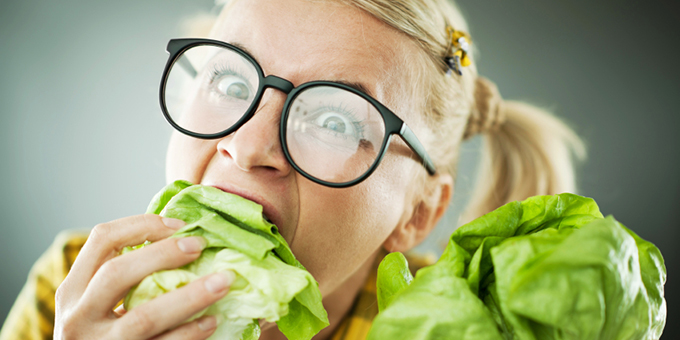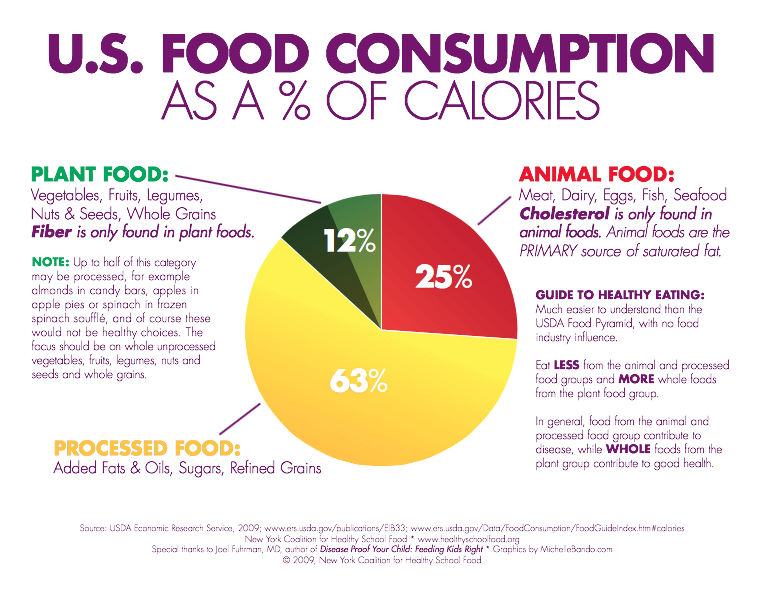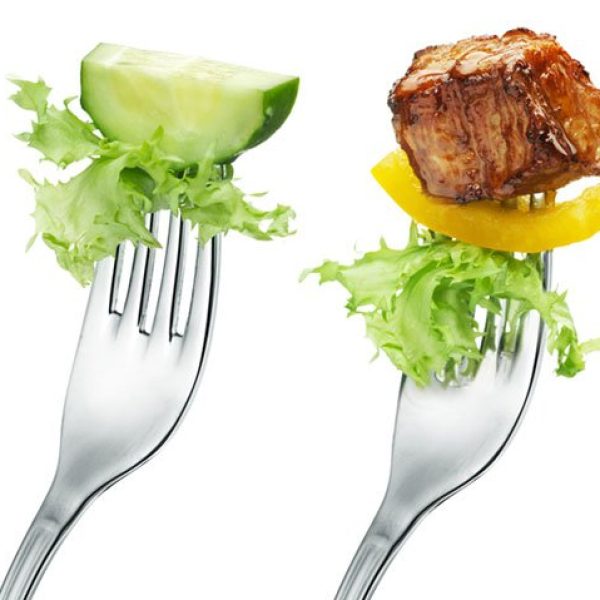People make the decision to live a vegan lifestyle for many reasons. Some because they are concerned with the environmental damage from the production of animal food products; some feel strongly regarding the ethical treatment of animals. Some people go vegan for personal spiritual reasons. Others do it for membership in an exclusive group.
If you are considering going vegan because you want to become healthier by eating better food, you may want to consider the following:
Vegan is just a name

Simply identifying yourself with that name does not make you somehow healthier. That someone is vegan is not nearly enough information to determine how healthy they are. However, veganism is healthier than the Standard American Diet (SAD), but then pretty much anything else is better than highly processed, full of sugar, salt and fat that causes chronic lifestyle diseases.

But there is a very long healthy eating spectrum to consider. If your only choices are the SAD at the far end of the scale at a zero, or going vegan, around the midway point around 5 or 6, of course vegan is a better choice. But wait, there’s so much more at the higher end of the healthiness scale that you should explore first. Do not assume that healthier eating is always going to be more difficult.
Excluding non-plants is not the answer
Eating vegan is not inherently healthier than everything else, and propagandists have used flawed logic to advance the idea that it is. Think about it. Just because eating lots of plants is healthy, does not mean that everything other than plants is BAD. That’s like saying that just because jogging is healthy, that swimming, dancing, cycling, and every other physical activity is BAD and should be avoided.
If you limit yourself to plant foods only, you forego numerous opportunities to be able to make plant foods more appealing to your family and friends. Items like cheeses, stocks/broths, bacon, butter, etc. may be the only ingredients between getting your family to eat a bunch of vegetables or not. Which is your kids more likely to eat, some boring steamed vegetables, or a scrumptious vegetable gratin? By eliminating unnecessary restrictions, you make healthy eating much, much easier. It is easier to be an omnivorous 8 or 9 on the healthy eating continuum than a vegan 5 or 6.
People who tell you that meat and dairy are bad are only telling you half of the story. Poor quality dairy and meat is bad, but high quality meat and dairy are completely fine. By high quality I mean preferably local, without the use of antibiotics or hormones, and pasture raised. While you may not always be able to obtain food that adheres to all of these requirements, the more the better because this is not a zero sum game. Also, there is nothing wrong with eating limited quantities of dairy and meat. There is no direct benefit to strictly banning these foods.
It is true that a few important nutrients are only available from animal products or supplements, like Vitamin B12, vitamin D3, DHA, carnosine and creatine. The problem is that supplements are not always as bioavailable as the nutrients contained in foods, and scientists don’t always know why. So why risk depending on some fake supplements, that may not do any good, instead of just getting the nutrients from the food? It is just an unnecessary risk.
Not eating enough plant-based foods is harmful, much more harmful than the inclusion of non-plant based foods. Instead of restricting everything that’s not a plant, it is a better plan to greatly increase plant foods you eat daily.
More stress and less social enjoyment can be worse than eating non-plant foods
Now this is a major component of my philosophy. When I help my clients design healthy eating plans that fit into their lifestyles I prioritize making it possible to share meals with family and friends, and not have to play short order cook to create a separate meal for everyone in the family. Or, skipping functions because you think you can’t eat the food everybody else will be eating there. Always eating alone is not good for the mind, body or soul. Though not causal, there is a link between frequency of eating alone and metabolic syndrome, just as there is with poor sleep and stress.
So if eating alone is associated with poorer dietary habits, what does the research show about eating with others? In short, communal eating not only activates beneficial neurochemicals, but also improves digestion. The dining table provides an opportunity for conversation, storytelling, and reconnection. When you bond with others and experience a sense of connection, endogenous opioids and oxytocin are released that stimulate pleasant feelings. The neurochemical changes lead to improved well-being and contentedness.” ~Nicole Brisnic, Brain World
Because there is so much intentional confusion relating to healthy eating, I feel the need to carefully spell out my conclusion:
- If health is your primary on only concern, being vegan may not be your best choice.
- The more varied your diet, the easier it is to eat for your best health.
- Restrictive diets make it more difficult and stressful to eat for your health, which greatly increases your probability of failure.
Plant-centric eating: a viable healthy alternative to being vegan or vegetarian
There are many ways that you can improve your health without taking on a restrictive (and incomplete) diet of only plants. For example, you could:
- Try eating a less restrictive vegetarian diet. (Includes dairy, honey, animal broths, etc.)
- Add more vegetables and fruits to your daily diet.
- Use animal products as a flavor enhancer rather than a main course.
- Pick a couple of days per week that you eat only plants but include non-plants on other days.
- Eat one or two plant based (not necessarily plant exclusive) meals a day.
The easiest way for most people is to learn to adopt plant-centric eating habits. Plant-centric is about inclusion, not exclusion. Plant-centric also has a focus on not just choking down boring bland plants, but learning ways to truly enhance the plant dishes in such a way that they actually become the star of the meal.
I am biased. I think that plant-centric is the best way to eat for health. It’s what I teach my clients. We explore how to use herbs, spices, fats, and yes, animal products to prop up the vegetables and make them crave-worthy to the whole family.
For more information sign up for a call with me to find out how I can help you design a plant-centric lifestyle that fits the way you really want to live, without the restrictions, misery and social isolation of restrictive eating.


 I’m LifeBliss Lisa and I coach black women on how to create intentional, healthy, soft lifestyles.
I’m LifeBliss Lisa and I coach black women on how to create intentional, healthy, soft lifestyles.